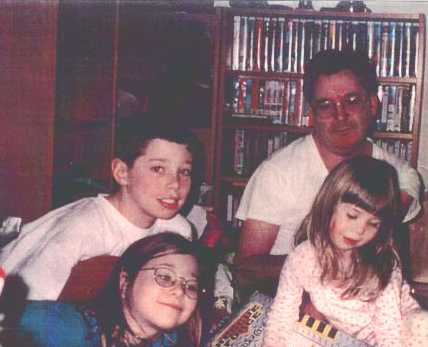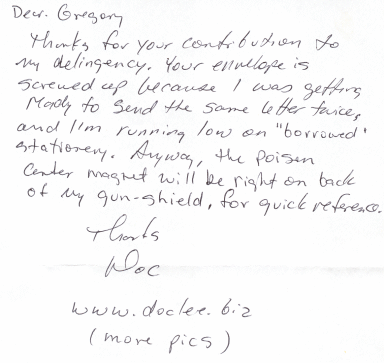…if you are patient and let it emerge. Sometimes you do have to sleuth it out, chase it down or darn near drag it out of people with them kicking and screaming. Follow along and I’ll show you what I mean. Before reading any further, watch this video, making note of your reactions to the two players involved: The Bus Uncle.
Were you angry at the Bus Uncle? Sympathetic toward him or the young man? How would your have reacted to the Bus Uncle? What would you have done if you were the young man? And what if you were one of the spectators, perhaps even the person who caught this on video?
Well, there is more to the story of the Bus Uncle. Click here and get yourself some learnin’.
Now that you know a bit more about the cast of characters, how has your response changed to the event depicted in the video?
I’ve nudged people, just as the young man in the video, prompting them to speak lower while on their cell phone. But at 6’5″, 230 lbs and all the confidence of an Aikido black belt behind my nudge and polite request, the risk of anyone bus uncling me is no doubt quite low. In other words, the threshold for provoking a negative reaction against me is rather high. For the young man in the video, that threshold was no doubt much lower. If anyone ever were to cross my threshold, I would have responded in a manner similar to the young man – its that Aikido stuff again – assume a defensive posture and make efforts to deescalate the situation. Only if physically attacked would I have responded aggressively, decisively, and only with enough force as was necessary to stop the attack.
So my response would have mirrored that of the young man’s, although undoubtedly with a different strategy and set of motivations in play. What the heck, we’re all on this train for the duration of the trip and as long as the Bus Uncle isn’t hurting anyone, including himself, its all a bit of goofy entertainment. I’m cool with that.
About half way into watching the Bus Uncle video, I remembered a story, probably because it took place on a train as well, told by Terry Dobson which I read many years ago and hadn’t thought of for about as long. Terry was an Aikido student in Tokyo when a drunk laborer stumbled onto a train he was riding.
He was a big man, a drunk and exceedingly dirty Japanese laborer. His clothes were stiff with dried vomit, his hair matted and crusted with filth. His eyes were a bloodshot, neon red, and his face was apoplectic with hatred and rage. Screaming unintelligibly, he swung at the first person he saw – a woman holding a baby.
From there, things got worse. A young, healthy, sober and highly trained Aikido student, this was just the sort of situation Terry was hoping for to test his skills. As the two squared off for battle, they were interrupted at the last second by a small, elderly man immaculately dressed in a kimono and hakama. “What you been drinkin’?”, asked the old man and from there he proceeded to deftly diffuse the conflict. Eventually, the old man made reference to the laborer’s “wonderful wife.”
“No,” replied the laborer, shaking his head sadly. “I don’t got no wife.” He hung his head, and swaying silently with the motion of the train. And then, with surprising gentleness, the big man began to sob. “I don’t got no wife,” he moaned rhythmically, “I don’t got no home, I don’t got no clothes, I don’t got no tools, I don’t got no money, and now I don’t got no place to sleep. I’m so ashamed of myself.”
Terry’s response was profound:
And all of a sudden I felt ashamed. I felt more dirty in my clean clothes and my make-this-world-safe-for-democracy righteousness than that laborer would ever be.
…
I saw that what I had been prepared to accomplish with bone and muscle had been accomplished with a simile and a few kind words. I recognized that I had seen Aikido used in action, and that the essence of it was reconciliation, as the Founder had said. I felt dumb and brutal and gross. I knew I would have to practice with an entirely different spirit.
As with Terry Dobson’s story, the Bus Uncle is a good lesson in the importance of context when you seek to understand a situation. It is critical if you wish to find a solution to a problem. The bigger the problem, the more important it is to understand the problem context. If you are trying to hammer a nail into a piece of wood, just the facts will suit you fine. If you are being physically attacked or otherwise in imminent threat of serious bodily harm or death, you have all the context you need to make any life saving decisions. If, however, you are trying to do something like build peace in the Middle East, you’ll need the context if you want to avoid building a house of cards.
The problem content, contrary to what most people generally think, is not the only important element or even the most important element. You could be seeking a solution to a life threatening illness, a relationship issue, problems at work, international conflict, or an angry commuter on a train. Content can be important, but its rarely the only important thing. Approaches to problem solving, based on technologies like neuro-linguistic programing, where content is intentionally removed from the process offer excellent illustrations to just how much easier a solution can be found when the distractions of content are removed.
Fixating on content can leave one in a panic or paralyzed from acting. If the issue is health, for example, you want to make sure the medications involved are not in conflict with each other. That sort of content is important, even critical. The potential for things to go awry increases when content is given the priority to the exclusion of all else, especially the context. That can lead to the common result where the solution becomes part of the problem.
Another excellent video that deals with context: Koyaanisqatsi – At the beginning of the movie, you do not know what you are seeing. Gradually, the viewer is given a little more information, a little more context. It is only when you have enough context that you understand what you are watching. How soon the viewer is able to understand what they are looking at is dependent on their personal experience and knowledge of the subject and ability to extrapolate what they see and match it to what they know. This is a theme throughout the movie as the viewer is challenged to consider the bigger picture.
You know nothing, if you do not know the context.



